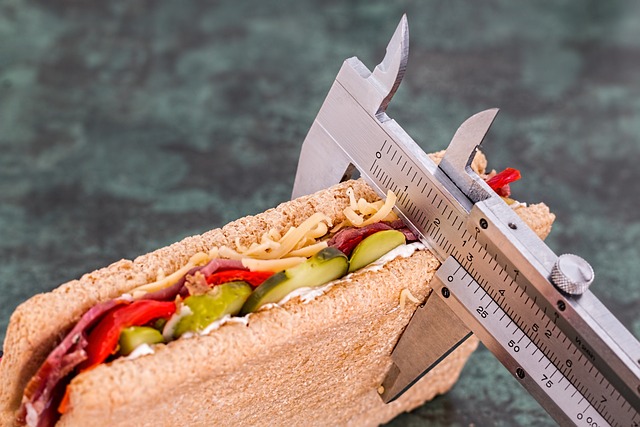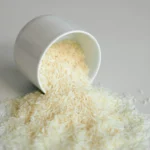Looking to maintain your weight but unsure about the appropriate calorie intake? It’s a question many of us have asked at some point on our health journey. Understanding the right balance of calories is crucial for achieving our goals. Whether you’re trying to shed a few pounds or simply stay at your current weight, the answer lies in finding the right number of calories to consume each day. In this article, we will explore the importance of calorie intake, what factors influence it, and how to determine the appropriate amount for you. By the end, you’ll be equipped with the knowledge to make informed decisions about your nutrition and finally achieve that healthy balance!
In This Article
ToggleWhat is the appropriate calorie intake for maintaining my weight?
Maintaining a healthy weight is crucial for overall well-being, and understanding the appropriate calorie intake is a key component of achieving this goal. By consuming the right amount of calories, you can ensure that your body is receiving the energy it needs without overloading it. This article will provide you with comprehensive information on determining the appropriate calorie intake for maintaining your weight.

How many calories should I eat per day to maintain my weight?
To answer this question, we need to consider the concept of energy balance. Energy balance refers to the equilibrium between the calories you consume and the calories you expend. When these two factors are in balance, your weight remains stable.
Determining your Total Daily Energy Expenditure (TDEE) is key to maintaining weight through calorie balance. TDEE is the total number of calories your body needs to perform its daily functions, including physical activity. This includes the calories needed to keep your organs functioning, digesting food, and completing day-to-day tasks.
Factors affecting calorie intake
Several factors influence your calorie intake. Age and metabolism play a significant role, as metabolic rates tend to decrease with age. Body composition, including muscle mass and fat percentage, can also impact calorie needs. Additionally, genetics, hormonal factors, and certain medical conditions can affect how the body processes and utilizes calories.
Calculating calorie needs
Calculating your calorie needs can be done using various equations. The Harris-Benedict equation is commonly used to estimate Basal Metabolic Rate (BMR), which represents the number of calories your body needs at rest. BMR plays a significant role in determining your overall calorie intake.
Another equation that is often used is the Mifflin-St. Jeor equation, which takes into account several factors, including age, weight, height, and gender. This equation provides a more accurate estimation of total calorie needs.
Gender and age considerations
Gender and age are important considerations when determining calorie requirements. On average, men tend to have higher calorie needs compared to women due to differences in body composition and hormonal factors. As individuals age, their metabolic rates tend to decrease, leading to lower calorie needs. Adjusting calorie intake based on gender and age can help ensure appropriate energy balance.
Activity level and calorie intake
Physical activity is another factor that affects calorie intake. The more active you are, the more calories your body needs to support your level of activity. Understanding the role of physical activity and the impact it has on calorie intake is crucial in maintaining a healthy weight.
Different activity levels require different calorie intakes. Someone who leads a sedentary lifestyle will have lower calorie needs compared to someone with a moderate or high level of physical activity. Adjusting your calorie intake based on changes in your activity level is essential for maintaining weight.
Basal Metabolic Rate (BMR)
Basal Metabolic Rate (BMR) refers to the number of calories your body needs at rest to carry out basic physiological functions. BMR is influenced by factors such as age, gender, weight, and body composition. Understanding your BMR can help you determine the appropriate calorie intake for maintaining your weight.
To calculate your BMR, you can use the Harris-Benedict equation, which takes into account your age, gender, weight, and height. Once you have calculated your BMR, you can adjust your calorie intake based on your activity level and weight goals.
Benefits of tracking calorie intake
Tracking your calorie intake can have numerous benefits when it comes to maintaining weight. By keeping a record of the calories you consume, you can increase awareness of your eating habits. This awareness allows you to identify potential problem areas and make necessary adjustments to your diet.
Tracking your calorie intake also helps you maintain accountability and motivation. When you see the numbers and have concrete data on your daily calorie intake, it becomes easier to stay on track and make healthier choices. Additionally, tracking calories can help you optimize nutrient intake, ensuring that you’re getting the right balance of macronutrients and micronutrients.
Maintaining weight loss
For individuals who have previously lost weight, maintaining weight loss requires a careful balance of calorie intake and expenditure. It is crucial to find the right calorie balance to prevent weight regain. While it may be tempting to return to previous eating habits, it is necessary to continue practicing portion control and making mindful food choices.
Monitoring your progress regularly and making adjustments as needed is essential when it comes to maintaining weight loss. By being vigilant about calorie intake and making changes when necessary, you can sustain your weight loss achievements in the long term.
Adapting calorie intake over time
Calorie intake needs can change over time due to various factors such as age, activity level, and weight goals. It is important to adapt your calorie intake as needed to ensure that you’re meeting your specific requirements.
For example, as you age, your metabolic rate naturally decreases, so adjusting your calorie intake accordingly can help maintain weight. Similarly, if you increase your activity level, you will likely need to increase your calorie intake to fuel your body properly. Regularly reassessing and adjusting your calorie intake ensures that you’re meeting your body’s changing needs.
Seeking professional guidance
While there is a wealth of information available on calorie intake and weight maintenance, it is always a good idea to seek professional guidance if you have specific dietary needs or health conditions. Consulting a registered dietitian or nutritionist can provide you with an individualized approach to determining your calorie intake and help you make informed decisions about your nutrition.
A professional can consider your unique circumstances and guide you in establishing an appropriate calorie intake for maintaining your weight. They can also provide support and advice on any dietary modifications required due to specific health conditions or special dietary needs.
In conclusion, determining the appropriate calorie intake for maintaining your weight is a multifactorial process. Factors such as age, gender, activity level, and body composition all influence your calorie needs. It is essential to calculate your Total Daily Energy Expenditure (TDEE) and adjust your calorie intake accordingly. Tracking your calorie intake, maintaining weight loss, and seeking professional guidance are all crucial steps in maintaining a healthy weight. By understanding and implementing these strategies, you can support your overall health and well-being.
FAQ
1. Why is it important to know the appropriate calorie intake for weight maintenance? Understanding the right balance of calories is crucial for maintaining weight, whether you’re trying to lose weight or stay at your current weight.
2. How is calorie intake related to maintaining weight? Calorie intake should be balanced with the calories expended to maintain a stable weight. Total Daily Energy Expenditure (TDEE) is key to maintaining weight, including calories needed for bodily functions and physical activity.
3. What factors affect calorie intake? Age, metabolism, body composition, genetics, hormonal factors, and certain medical conditions influence calorie needs.
4. How can you calculate your calorie needs? Calorie needs can be estimated using equations like the Harris-Benedict and Mifflin-St. Jeor, which considers factors like age, weight, height, and gender.
5. Do gender and age affect calorie requirements? Yes, men generally have higher calorie needs than women, and calorie needs decrease with age due to changes in metabolism and body composition.
6. How does physical activity level influence calorie intake? The more active you are, the more calories you need. Calorie intake should be adjusted based on activity levels, with active individuals requiring more calories than those with a sedentary lifestyle.
7. What is Basal Metabolic Rate (BMR) and its importance? BMR is the number of calories your body needs at rest for basic functions and is influenced by age, gender, weight, and body composition. It helps determine appropriate calorie intake for weight maintenance.
8. What are the benefits of tracking calorie intake? Tracking calories increases awareness of eating habits, helps identify problem areas, maintains accountability, and optimizes nutrient intake for balanced macronutrients and micronutrients.
9. How do you maintain weight loss? Maintaining weight loss requires balancing calorie intake and expenditure, practicing portion control, making mindful food choices, and regularly monitoring progress.
10. Should calorie intake be adapted over time? Yes, calorie needs change with age, activity level, and weight goals. It’s important to adjust calorie intake accordingly to maintain weight and meet the body’s changing needs.
11. When should you seek professional guidance for calorie intake? Professional guidance is recommended for those with specific dietary needs or health conditions, to establish an appropriate calorie intake and receive advice on dietary modifications.
Related posts:
 What Training Should I Be Doing To Lose Weight? The 1 Comprehensive Guide
What Training Should I Be Doing To Lose Weight? The 1 Comprehensive Guide
 How Much Weight Should I Use When Strength Training?
How Much Weight Should I Use When Strength Training?
 Puravive Review Revealed: How This New Supplement Is Changing the Game in Healthy Weight Management
Puravive Review Revealed: How This New Supplement Is Changing the Game in Healthy Weight Management
 The Importance of Dietary Fiber and Where to Find It
The Importance of Dietary Fiber and Where to Find It
 What are the benefits of eating organic foods?
What are the benefits of eating organic foods?
 How can I make healthier food choices when eating out?
How can I make healthier food choices when eating out?








No comment yet, add your voice below!